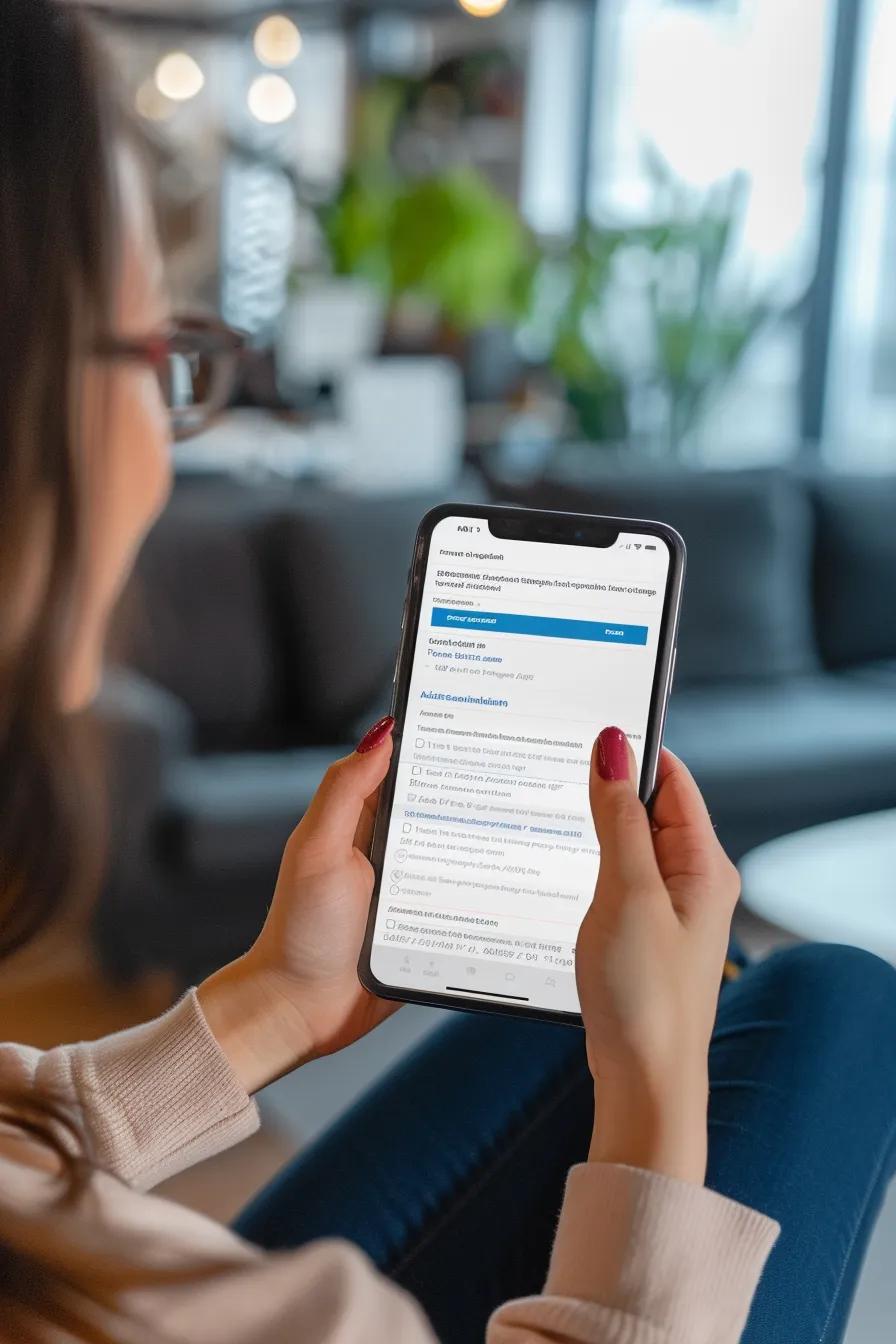Have you ever considered the real cost of an LMS that doesn’t align with your organization’s needs? This hidden expenditure doesn’t appear on any balance sheet, yet its impact on knowledge transmission, task completion, skill acquisition, and overall productivity can be profound. In this article, you’ll discover how the right—or wrong—Learning Management System (LMS) influences financial stability through areas like productivity, integration complications, and maintenance outlays. You’ll learn how an effective LMS contributes to streamlined performance management, enhancing the profitability of your investment. If you’re seeking to improve educational outcomes without jeopardizing your bottom line, the insights here will guide you toward mitigating financial risks by making informed LMS choices.
Uncovering the Hidden Costs of Choosing the Wrong LMS

When deciding on a Learning Management System (LMS), you must weigh the initial costs against the long-term financial implications. Delving into the expenses, it’s critical to uncover any unexpected fees that might derail your budget. This section analyzes the hidden costs beyond the upfront charges, from extra fees to the impact on user adoption due to diverse learning styles. As your guide, we’ll shed light on these financial nuances, ensuring your investment aligns with personal development and management software goals, safeguarding against the common pitfalls that violate the Pareto principle by incurring 80% of costs from 20% of overlooked issues.
Analyze Initial Versus Long-Term Expenses of an LMS
When you select an LMS, it’s crucial to analyze not only the initial expenses but also the long-term running costs. An LMS that lacks efficient analytics or adaptive learning features may result in higher indirect costs over time due to increased support needs and reduced user engagement. Consider this: an LMS with robust ethics in design that streamlines user experiences can drastically cut the hidden expenses related to training and performance losses.
The allure of low upfront costs can be deceiving if the LMS fails to scale or integrate with your existing systems. You need an LMS that grows with your organization and improves efficiency, not one that will require costly upgrades or customizations later. Keep an eye out for an LMS that offers in-depth analytics and adaptive learning paths, as these can significantly reduce long-term expenditure by optimizing the learning experience for every user.
Identify Unexpected Fees and Extra Charges
When you embark on the journey of selecting an LMS, beware of unexpected fees that could inflate your budget beyond the initial quote. Extra charges might creep in for advanced training services or for accessing full spectrum analytics, putting strain on your financial resources. Especially critical to consider are costs associated with API integrations, which if not clearly outlined, can lead to surprises when you seek to customize the platform for your organization’s unique needs.
Moreover, overlooked aspects such as the psychology of user engagement and data security can escalate costs if they are not part of the core LMS offering. Reputational stress from data breaches or poor user adoption due to a lack of psychological insights in design may require you to outlay additional resources for corrective measures. It’s therefore essential to scrutinize the full scope of an LMS’s features and services to mitigate these hidden financial risks.
Mistakes in selecting an LMS carry a price. Let’s examine this further.
Assessing Productivity Losses From Ineffective LMS Systems

Evaluating the impact on employee learning efficiency and calculating the cost of decreased productivity are crucial when assessing an LMS. An ineffective system may hinder habit formation in learning, complicate navigation, and render mobile app integration problematic. It can also falter in conflict resolution and document management, resulting in diminished performance and increased costs. These topics delve into how suboptimal LMS choices can directly affect your bottom line by eroding productivity.
Evaluate the Impact on Employee Learning Efficiency
A learning management system should be a catalyst for knowledge, not an obstacle. As you evaluate potential systems, remember, an LMS that lacks scalability can curtail your team’s ability to grow and adapt to new learning modalities. Seamless interfaces and intuitive navigation enhance learning culture, propelling your organization forward, whereas a cumbersome system dampens the spirit of inquiry and innovation critical for staying ahead.
Ownership of the learning process is key to efficiency. Conduct research to ensure the LMS fosters a sense of autonomy among users, enabling them to manage their learning journey effectively. Your system should empower employees to track their progress and set milestones, fostering an engaged and self-sustaining learning environment. A system that fails to support these capabilities can lead to disengagement and hinder overall productivity.
Calculate the Cost of Decreased Productivity
When you encounter an LMS with an interface that hinders rather than helps, the cost isn’t just frustration but measurable in financial terms. An LMS lacking in automation and accessibility features can slow down your staff, leaving them mired in manual processes that could be streamlined. As your learners grapple with a system that doesn’t match their brain’s natural way of absorbing information, adoption rates plummet, and the time spent on learning tasks balloons, leading directly to a tangible decrease in productivity.
To determine the real financial impact, imagine the cumulative hours spent by your staff trying to navigate a non-intuitive LMS. Lack of accessibility impedes your team’s ability to fully engage with the learning process. As a result, your organization may find itself compensating with additional resources—time, personnel, and money—to mitigate the shortcomings of an ineffective system. This drain on productivity directly affects your bottom line and lays bare the true cost of a poorly chosen LMS.
The cost of an ineffective LMS is not limited to productivity alone. Next, we examine how integration issues tie into financial losses, critical for your organization’s bottom line.
Evaluating Integration Issues and Their Financial Impact

You need to scrutinize the synergy between your new LMS and existing software, ensuring seamless compatibility and avoiding costly integration setbacks. An LMS with inflexible scalability not only impacts resource allocation but also hampers the user experience and human resource management. You’ll examine these integration issues and understand their financial repercussions, addressing the necessity for carefully vetted personalization and behavior-compliant features in your LMS selection.
Examine Compatibility Problems With Current Software
When you integrate a new LMS, compatibility with existing software can present significant stumbling blocks. Inadequate design foresight can mean that your investment into mentorship and network platforms for your employees faces unforeseen technical difficulties, stifling strategic deployment. If the LMS cannot communicate fluently with your systems, the resulting inefficiencies necessitate excessive troubleshooting, leaning heavily on your operational budgets and demanding additional expenditure for smooth interoperability.
Moreover, failure of an LMS to seamlessly blend into your technological ecosystem can fragment the user experience, disengaging employees and undermining the very objectives of your learning strategies. You rely on your LMS to be a cohesive force, promoting ease and accessibility. Disparities in software compatibility obstruct the mentorship process, deter employee development, and pressure your financial resources to bridge these gaps—an expenditure that should have been avoidable with a discerning selection of a truly integrative LMS solution.
Understand Costs Arising From Poor Scalability
Understanding the costs associated with poor scalability in your LMS is essential for effective budget management. When a system can’t grow with your organizational needs, your stakeholders are often forced to fund unexpected upgrades or seek alternative solutions, leading to overtime expenditures and financial strain. It’s imperative that your LMS supports scalability, including the integration of emerging trends such as microlearning, to prevent these unforeseen expenses.
An accurate evaluation of your LMS’s scalability potential helps mitigate the risk of unplanned budget increases. If the system cannot incorporate additional users and content as your company expands, you may find your team spending valuable time and resources on workarounds or supplementary tools to address these gaps. This can translate into significant overtime costs and financial liabilities that could otherwise be allocated to strategic business initiatives.
The integration’s financial toll is clear. Now, let’s crunch the numbers for ongoing upkeep.
Calculating Maintenance and Support Expenses Over Time

Assessing the ongoing maintenance and support costs associated with an LMS is critical for your overall budget strategy. You must be prepared not only to build a comprehensive knowledge base but also to account for the emotional intelligence necessary to implement feedback mechanisms and encourage knowledge sharing. As you delve into upgrade expenses and system updates, understanding the cost implications in advance guards against financial surprises. Each subsequent section will guide you through these costs, offering insights on maintaining your system’s innovation and operability without hampering your financial resources.
Anticipate Ongoing Maintenance and Support Costs
You must carefully consider the maintenance and support schedule that your LMS system requires. Regular updates are necessary for data migration and feature improvements, ensuring that dashboard analytics and customer service tools perform optimally. Neglecting this aspect can result in escalating costs down the line, as emergency fixes and rushed support become a dire necessity rather than a routine precaution.
Choosing an LMS that provides responsive customer service is critical to managing unforeseen issues efficiently. Without a reliable support system, your team can face protracted downtime, hindering progress and incurring additional costs. Proper LMS selection must include evaluating the support and maintenance history of the provider, as this can be indicative of the reliability and long-term financial commitment required to sustain the system’s operations.
Prepare for Upgrade Expenses and System Updates
As you project the life cycle of learning management systems for your organization, consider the inevitability of upgrade expenses and system updates. These are not mere ancillary costs; rather, they are vital investments that ensure your online learning platform remains at the forefront of technology and pedagogy. An outdated system can stifle innovation, leaving your team’s skills and the corporate learning strategy behind the curve.
Your desk, often a command center for orchestrating online learning initiatives, may be where you’ll witness the true scope of costs associated with infrequent but significant updates. To prevent your budget from being blindsided, it’s prudent to forecast these expenditures, enabling you to experiment with new features without financial strain. This proactive approach ensures that your system evolves, offering a robust and seamless learning experience for all users.
Calculating maintenance and support expenses is just the beginning. Now we must gauge their drag on ROI and profitability.
Measuring the Negative Effect on ROI and Profitability

Choosing the erroneous LMS can have grave ramifications for your return on investment (ROI) and stunt revenue growth. In the subsequent sections, you’ll uncover how a flawed selection, devoid of a rigorous needs assessment or ignorant of LMS best practices, hampers ROI by limiting the effectiveness of your curriculum and content marketing efforts. Content that could engage learners becomes a distraction instead, impeding progress. You’ll also gauge the potential revenue losses that arise when the LMS fails to meet your organizational needs, emphasizing the importance of making an informed, strategic choice.
Determine How a Wrong LMS Affects Your ROI
Your return on investment (ROI) hinges on the proficiency of your LMS to captivate user attention and foster empathy through customer engagement. If your chosen system fails to resonate with learners or support your goals, users disengage, directly undermining the value and potential profitability your LMS should deliver. An ill-suited LMS translates to financial losses, as the resources invested yield lacklustre outcomes in user performance and satisfaction.
A failure to accurately assess the fit of an LMS within your infrastructure can stagnate or even reverse gains in productivity and learning effectiveness. Inevitably, this misstep leads to incurring additional costs for remedial measures or substitution of the system, thus eroding your ROI. The reality is stark; a poorly adopted LMS not only hemorrhages funds but also diminishes the potency of your educational offerings, consequently restraining both immediate and future revenue streams.
Assess Potential Losses in Revenue Growth
Revenue growth can be significantly hindered by an LMS that fails to accommodate health sector nuances or offer personalized learning paths. If your employees feel disconnected from the learning content or the tasks within the LMS are not aligned with their roles, you might see a decline in employee engagement. As engagement drops, so does the ability to effectively manage knowledge transfer, leading directly to a reduction in the potential return on your educational investments.
Your management team’s ability to forecast and pursue growth opportunities is intimately tied to the efficacy of your LMS. When learning is not personalized and fails to resonate with each individual’s needs, the progress and innovation of your staff are stifled. This stagnation in personal and professional development can ripple through your organization, culminating in a tangible deceleration of revenue growth and missed market opportunities.
Losses loom when your LMS falls short; it’s a hard truth. Choose wisely, and financial tides can turn.
Mitigating Financial Risks by Selecting the Right LMS

To secure your financial footing and maximize ROI, you must establish criteria for a cost-effective LMS choice and implement best practices to sidestep financial pitfalls. Whether considering adaptive platforms enhanced by artificial intelligence, reliable Moodle services, meticulous compliance training, or accessible software as a service (SaaS) solutions, a sound selection strategy instills confidence. The following insights will illuminate how precision in choosing an LMS safeguards against hidden costs while promoting sustainable growth.
Establish Criteria for a Cost-Effective LMS Choice
To ensure a cost-effective LMS choice, anchor your decision in clearly defined goals that resonate with your team’s and organization’s infrastructure. A system that aligns with your technological framework and promotes customer success is fundamental. Your selection criteria should prioritize integrability and the capability to scale with user demand, ensuring that the platform supports your team’s evolving needs without incurring excessive future costs.
Providing your team with a system that not only accommodates but also anticipates the needs for customer success will foster an environment of continuous growth and learning. Deliberate on an LMS that delivers a seamless user experience, robust support, and straightforward maintenance—qualities that collectively drive down total cost of ownership (TCO) and elevate team performance and satisfaction. This strategic approach mitigates financial risk and lays the groundwork for sustained educational impact.
Implement Best Practices to Avoid Financial Pitfalls
To sidestep financial pitfalls, you should select a tool aligned with robust business intelligence capabilities. It’s beneficial to choose an LMS equipped with analytics features that observe learner progress, responding to their needs while ensuring compliance with standards such as the General Data Protection Regulation (GDPR). This proactive approach not only secures learner data but also harnesses insights that steer your educational strategies toward demonstrable growth and cost efficiency.
In creating a sustainable and cost-effective ecosystem for your LMS, it’s critical to build a comprehensive digital library that supports diverse learning paths. This means choosing a system that integrates seamlessly with your existing content and enhances it through advanced pedagogical tools without the added burden of hidden costs. Prioritize tools that foster flexibility and adaptability, ensuring your LMS becomes a pivotal learning hub that drives user engagement and contributes positively to the bottom line.
Conclusion
The financial repercussions of choosing an unsuitable LMS can be significant, with hidden costs stemming from poor scalability, unexpected fees, and reduced productivity. To ensure a robust return on investment (ROI) and safeguard revenue growth, your LMS must align seamlessly with both organizational goals and learner needs. Avoiding these pitfalls requires establishing clear selection criteria and implementing best practices, creating a foundation for sustainable growth and the continuous advancement of your organization’s learning agenda.
Ready to make the right LMS choice? Contact Markanyx for a free assessmentand demo. Let us show you how a strategic LMS implementation can help your organization achieve unmatched scalability, ROI, and educational impact.





